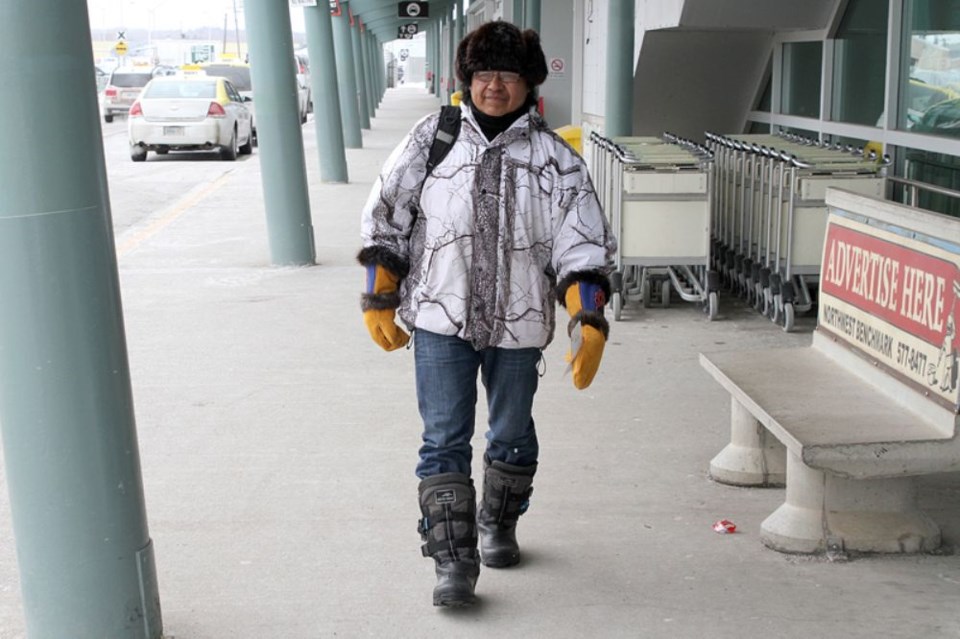THUNDER BAY -- Gary Sugarhead admitted it got lonely as he trekked through snowy Northern Ontario forests, his attempt to raise awareness of substance abuse and suicide in remote First Nations communities.
But while he considered giving up at times, walking 350 kilometres on snowshoes between his hometown of Kingfisher Lake and Eabametoong First Nation, the memory of his son and several nephews who committed suicide always kept him going.
Sugarhead, who arrived in Thunder Bay on Thursday, says he too has battled drug and alcohol addiction and hopes his walk, which included stops in Wunumin Lake and Summer Beaver, can help convince authorities to construct a northern suboxone treatment centre, to help eradicated the scourge of addiction and suicide.
The numbers are staggering.
According to Health Canada statistics, 30 per cent of all First Nations people have felt sad or depressed for two or more weeks, with suicide the leading cause of death for Aboriginal youth up to 44 years of age.
First Nations youth are five to six times more likely to commit suicide than non-Aboriginal youth, while First Nations females are seven times more likely to kill themselves than non-Aboriginal females.
“I guess it affects a lot of communities, drug abuse and alcohol abuse and suicide in Northern Ontario,” he said.
He’s hoping his awareness walk will open the eyes of many others who suffered like he has in the not-too-distant past.
“For me, I’m a survivor too. I have my own alcohol and drug abuse addiction before and I found my way to help myself. I found my way. It was a good healing journey, Sugarhead said.
“I’ve seen a lot of struggles in the young people up there in the communities. It’s been a great response from some people. Other people, they’re grandchildren are struggling as well.”
